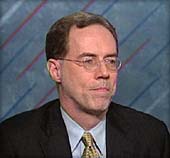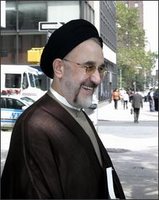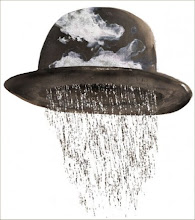IAEA says Congress report on Iran's nuclear capacity is erroneous and misleading
· Claims about programme are 'unsubstantiated'
· Leak shows watchdog detected five major errors
In a letter to the Republican chairman of the House of Representatives' intelligence committee, a senior director of the International Atomic Energy Agency (IAEA) said the report was "incorrect" in its assessment that Iran had made weapons-grade uranium at a site inspected by the agency. Instead, the letter said, the facility had produced only small amounts of uranium, which were below the level necessary for weapons.
The letter, leaked to the Washington Post, also criticised the report for making the "outrageous and dishonest" claim that a senior inspector was removed "for concluding that the purpose of Iran's nuclear programme is to construct weapons".
While the IAEA noted five major errors in the report, intelligence officials told the Washington Post that it contained a dozen assertions that were either wrong or impossible to substantiate.
The House report, under the chairmanship of the Michigan Republican Peter Hoekstra, was released on August 23. It was not voted on or discussed by the full bipartisan committee but it was reviewed by the office of John Negroponte, the director of national intelligence, before being released by Republican members of the committee.
Jane Harman, the Democrat vice-chairwoman of the committee, told colleagues in an email that the report "took a number of analytical shortcuts that present the Iran threat as more dire - and the intelligence community's assessments as more certain - than they are."
The report, titled Recognising Iran as a Strategic Threat, was written by Fredrick Fleitz, a CIA operative on secondment to the US ambassador to the UN,
John Bolton. Mr Fleitz and Mr Bolton were involved in constructing the arguments in favour of the March 2003 invasion of Iraq. Mr Fleitz is writing a report about North Korea for Mr Hoekstra's committee.
The row over the Iran report is reminiscent of the disputes between the IAEA, its chief Mohamed ElBaradei and the Bush administration in the run-up to the invasion of Iraq. "This is like pre-war Iraq all over again," David Albright, a former nuclear inspector who is president of the Washington-based Institute for Science and International Security, told the Post.
 Flynt Leverett, a former government official who worked at the Central Intelligence Agency, the Department of State, and on the National Security Council staff of the George W. Bush administration, is now a senior fellow and Director of the Geopolitics of Energy Initiative at the New America Foundation.
Flynt Leverett, a former government official who worked at the Central Intelligence Agency, the Department of State, and on the National Security Council staff of the George W. Bush administration, is now a senior fellow and Director of the Geopolitics of Energy Initiative at the New America Foundation.


